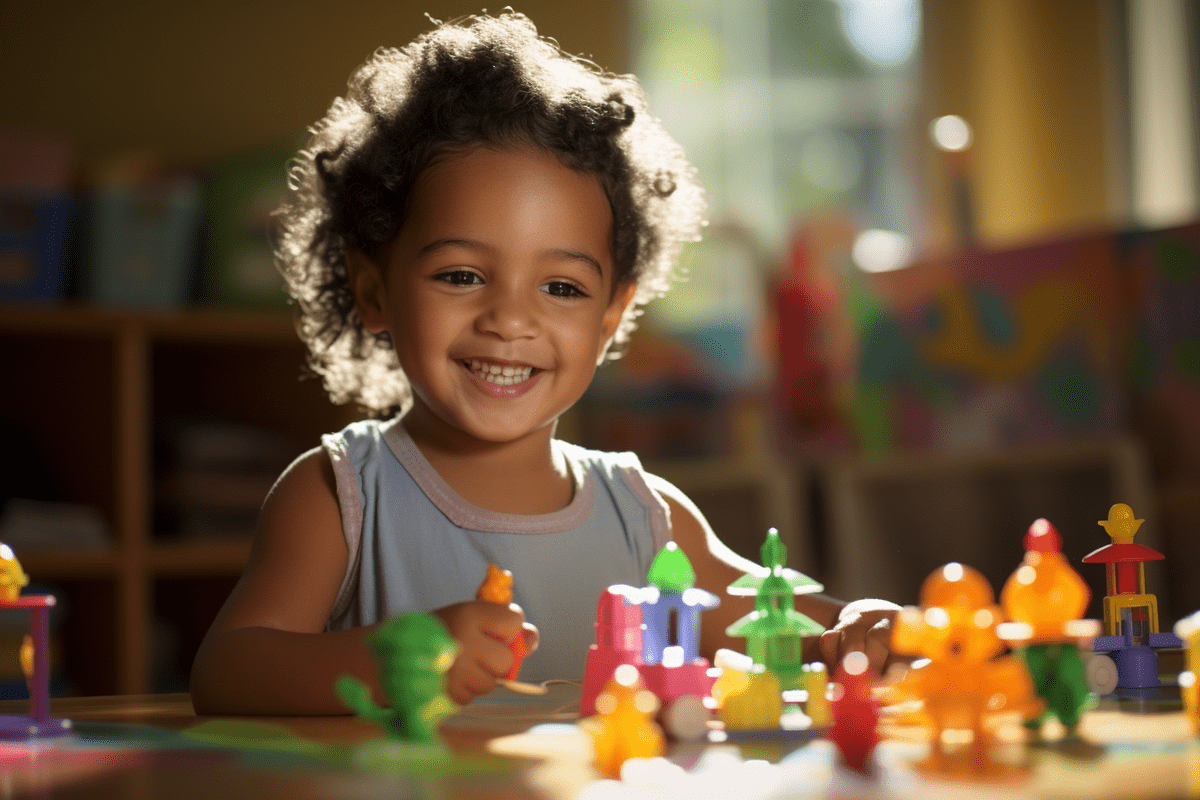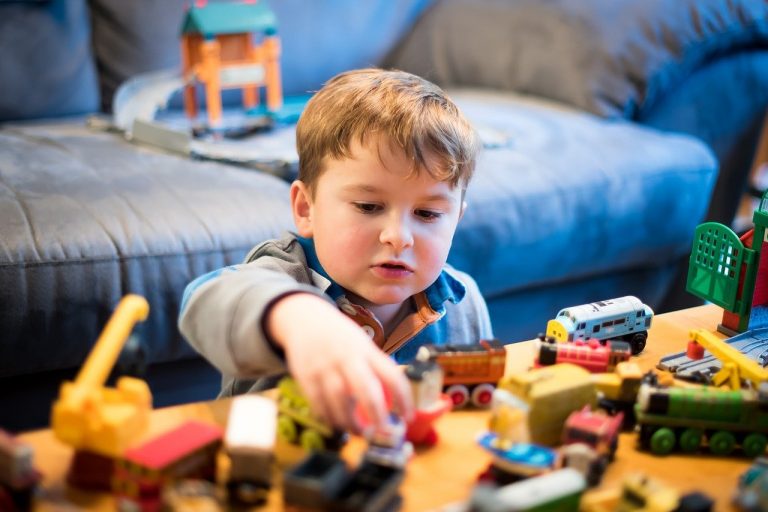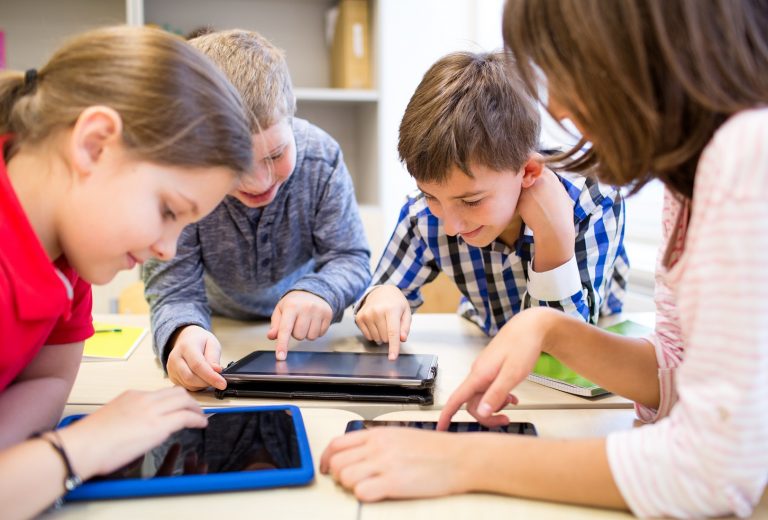Educational toys are essential tools for stimulating your child’s learning and development. They come in various forms, from puzzles and games to building blocks and interactive toys. These toys are a great way to have fun while learning, but the wide range can be overwhelming for parents. Even more important is selecting toys that are age-appropriate, ensuring they match your child’s developmental stage. In this guide, we’ll explore how to select age-appropriate educational toys for children. Also, we’ll discuss how to introduce educational toys into your child’s playtime. So, scroll down to know more.
Key Takeaways:
- Age-appropriate toys are crucial for children’s development.
- Educational toys come in a wide range of forms and types.
- Introducing interactive educational toys during playtime can be both fun and beneficial.
- Understanding your child’s developmental stages will help you choose the right toys for them.
In This Article
- What Are Educational Toys?
- Understand Your Child’s Age and Developmental Stages
- Infants (0-1 year age group)
- Toddlers (1-3 years age group)
- Preschoolers (3-5 years age group)
- School-age children (5-12 years age group)
- How do you select educational toys for babies?
- How do you select educational toys for toddlers?
- How do you select educational toys for preschoolers?
- How do you select educational toys for big kids?
What Are Educational Toys?
Educational toys are toys designed to educate and stimulate children’s learning. These toys are specially crafted to promote specific skills, such as cognitive, social, emotional, and physical development. They can be used to teach a variety of subjects, including math, science, language, and even life skills. Educational toys are often interactive, engaging children in hands-on activities that foster curiosity and foster their imagination.
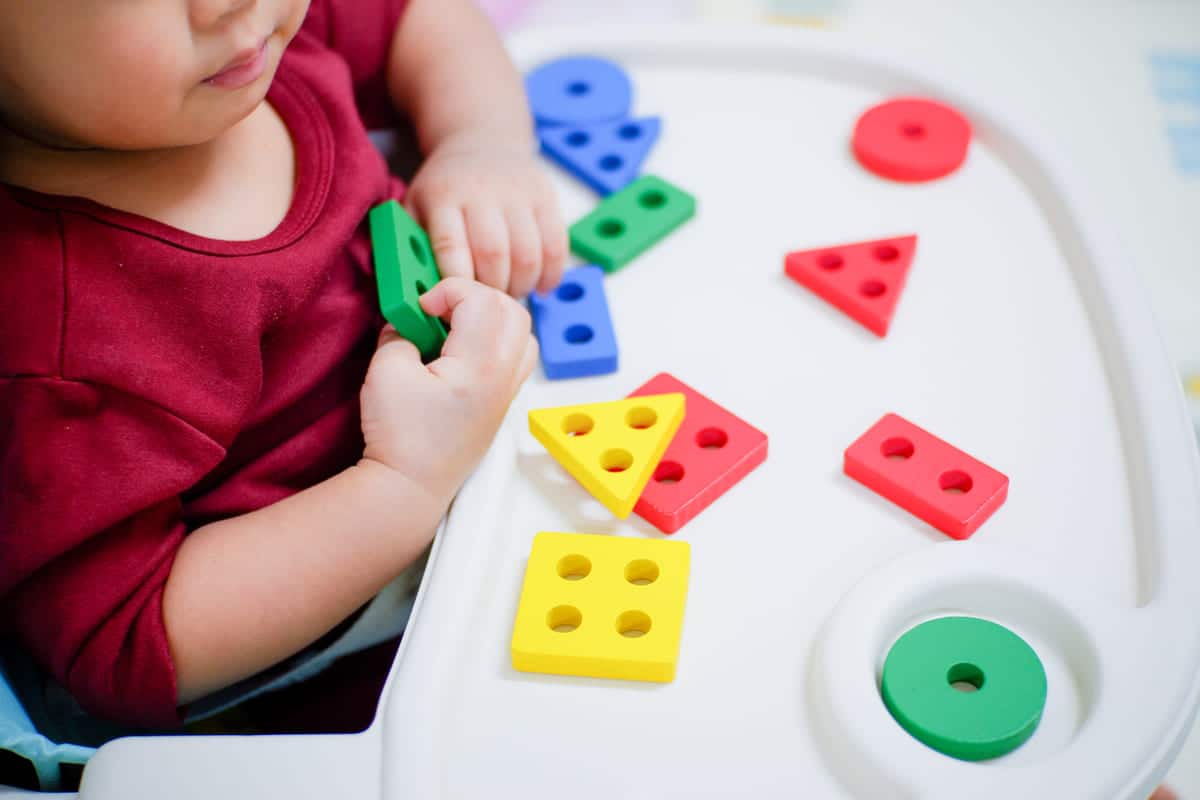
Understand Your Child’s Age and Developmental Stages
Understanding your child’s age and developmental stages is crucial when selecting educational toys that will be both enjoyable and beneficial. Here’s a look at the different stages and some examples of age-appropriate educational toys:
Infants (0-1 year age group)
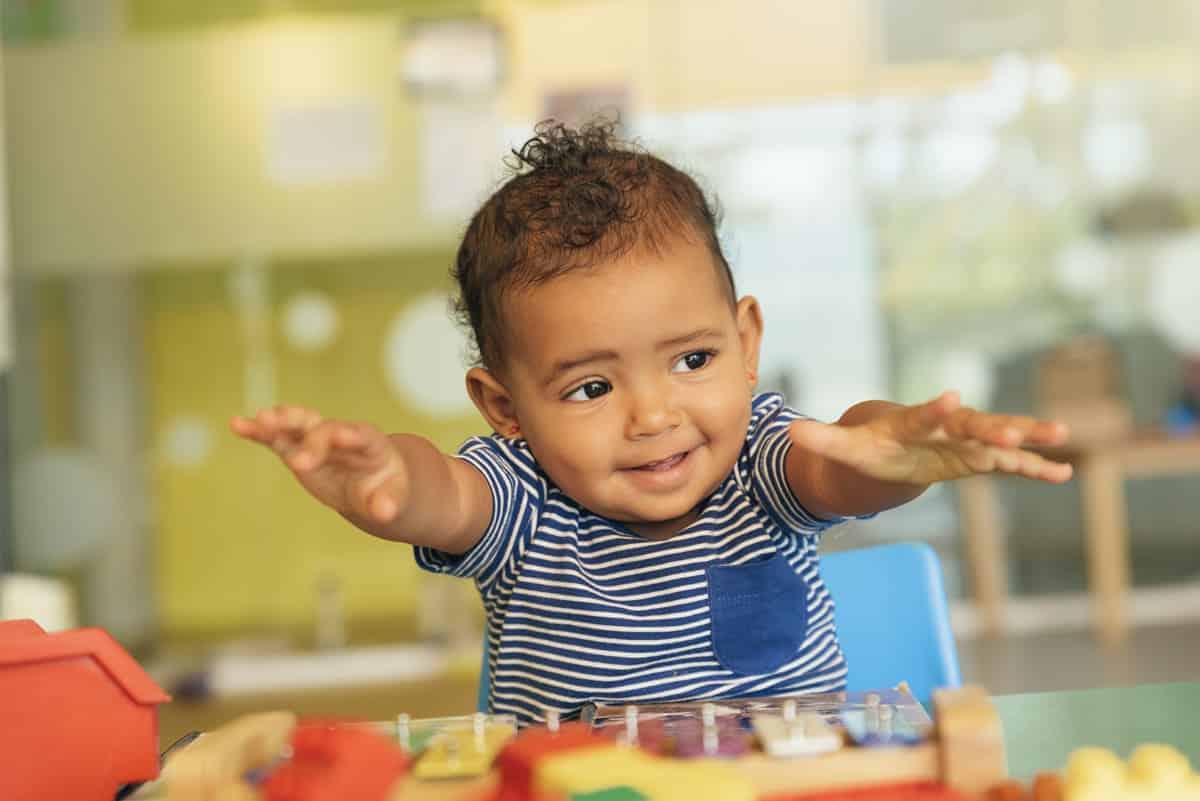
During this stage, babies are exploring their new world through their senses. They’re learning to focus their vision, reach out, and grasp objects. Toys that stimulate their senses can aid in their development.
- Soft Blocks: These are safe for infants and help stimulate their sense of touch and vision.
- Sensory Toys: Toys with varied textures, sounds, and colors engage an infant’s developing senses.
- Musical Instruments: Simple instruments like rattles or music boxes can stimulate auditory development.
However, these toys help to develop gross and fine motor skills, hand-eye coordination, and visual tracking. Toys like stuffed animals, teething toys, and soft nesting cups are also suitable for infants.
Toddlers (1-3 years age group)
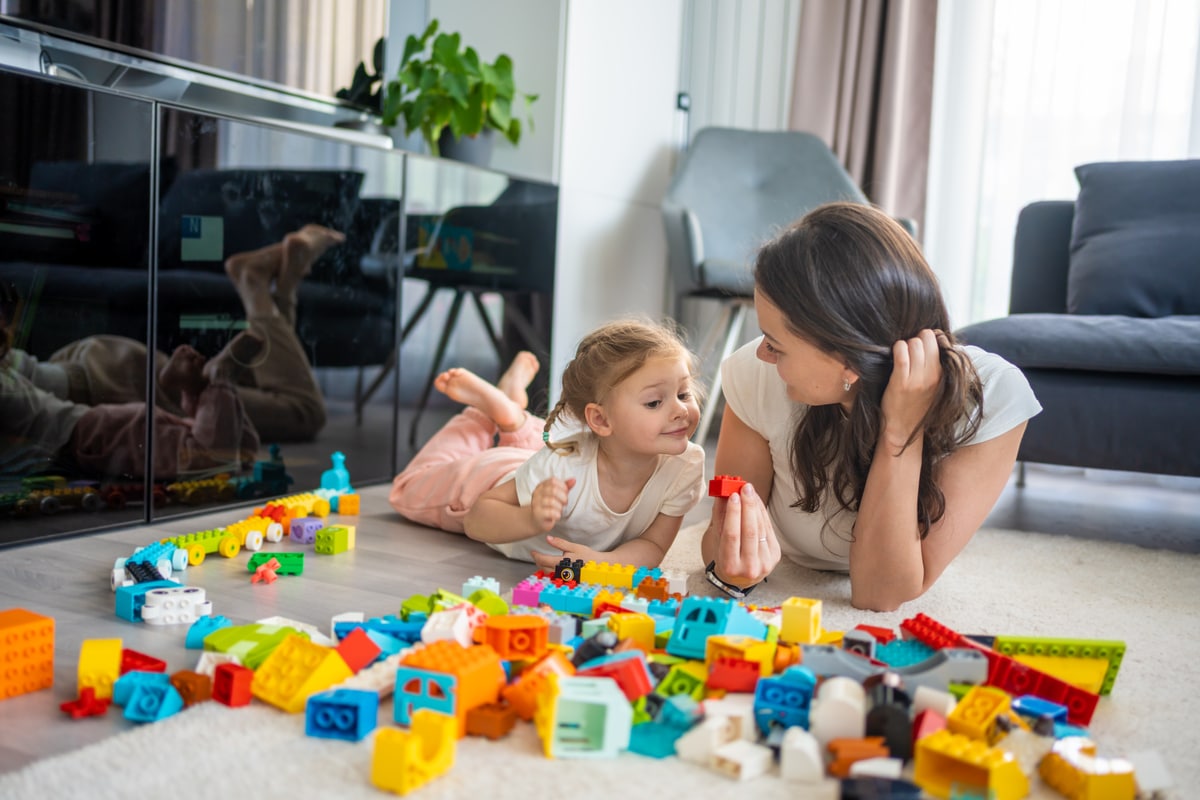
This is the stage where toddlers become more active in exploring their surroundings. They’re learning new skills like walking, talking, and problem-solving. Toys that encourage these activities can be beneficial.
- Stackable Blocks: These help improve motor skills and understanding of shapes and balance.
- Puzzles: Simple puzzles can enhance problem-solving skills.
- Picture Books: These foster a love for reading and help develop language skills.
- Pull toys: For your child’s development, choose toys that they can pull along while walking.
- Role-Playing Toys: Toys like kitchen sets and doctor kits enhance imaginative play.
Although pretend play becomes more important at this stage, toys that cater to physical development, like balls and tricycles, are also suitable.
Preschoolers (3-5 years age group)
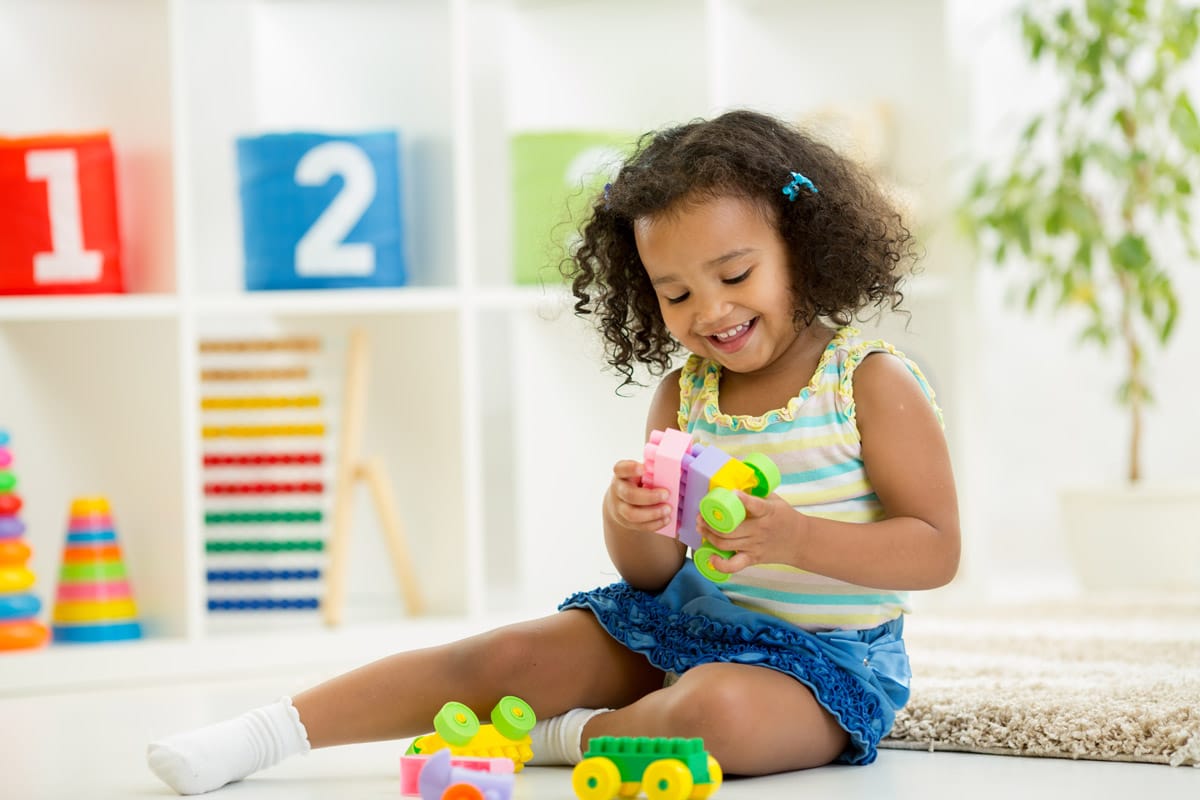
Preschoolers are beginning to learn more complex concepts and engage in more social interactions. They enjoy creative play and board games that involve simple rules.
- Art and Craft Sets: These toys encourage creativity and fine motor skill development.
- Simple Board Games: Board games can boost cognitive skills and teach the concept of rules and fair play.
- Interactive Learning Toys: These toys can introduce basic math, science, and language concepts.
- Dress-up clothes: Encourage imaginative play with dress-up clothes and accessories.
- Construction or Transportation toys: Foster problem-solving and spatial skills with toys like Legos or trains.
At this stage, children are also interested in exploring their environment. Educational toys such as insect catchers and beginner science kits can encourage exploration and provide brain development benefits.
School-age children (5-12 years age group)
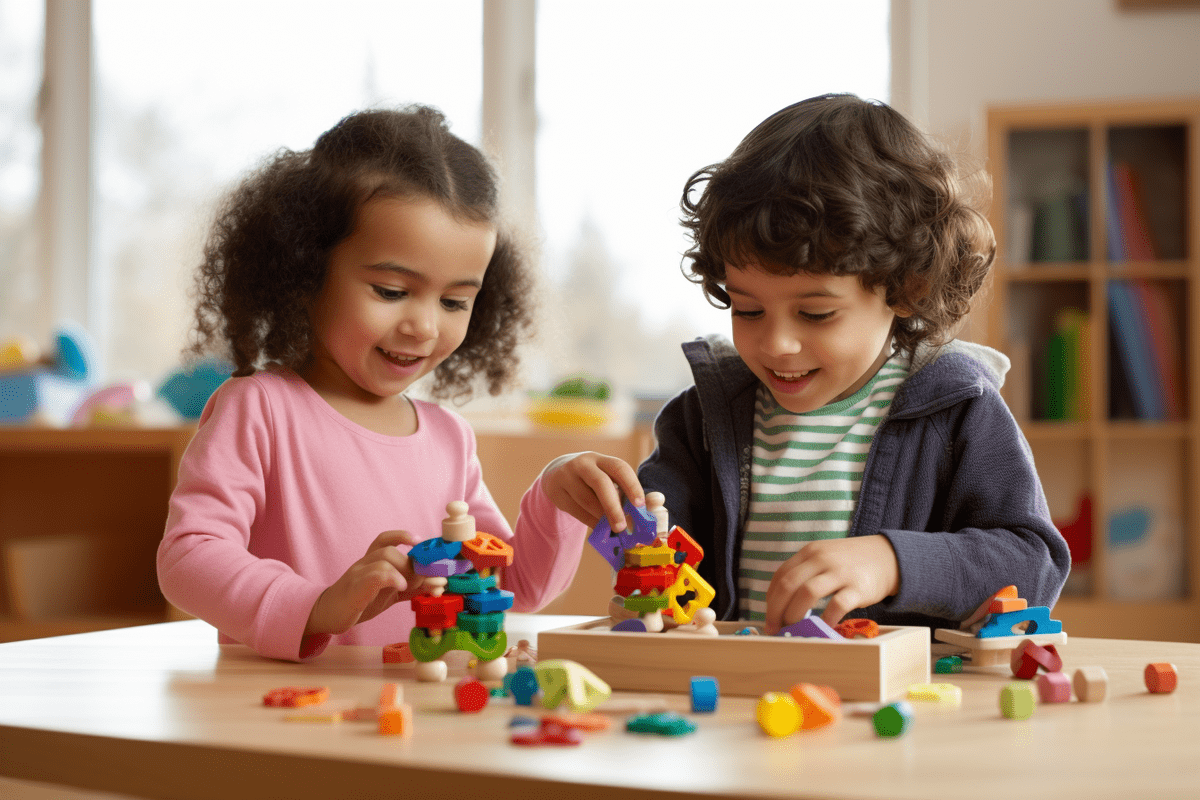
At this stage, children are capable of logical thought and can handle more complex games and activities. They’re also developing specific interests, which should be encouraged.
- Science Kits: These can feed a child’s curiosity about the world and encourage their interest in science.
- Complex Puzzles: More advanced puzzles can challenge a child’s problem-solving skills.
- Educational Video Games: These games can improve hand-eye coordination, strategic thinking, and can often be tailored to a child’s specific interests.
- Musical Instruments: Learning to play an instrument can foster creativity and improve cognitive skills.
- Sports Equipment: Encourage physical activity and skill development with sports equipment such as balls, bikes, or jump ropes.
As children enter their school-age years, they may also benefit from interactive educational toys that help develop gross motor skills, such as skateboards or hula hoops. Hence, kids learn at this stage how to interact with peers, and games such as hopscotch, tug-of-war, or tag can help foster social skills.
How do you select educational toys for babies?
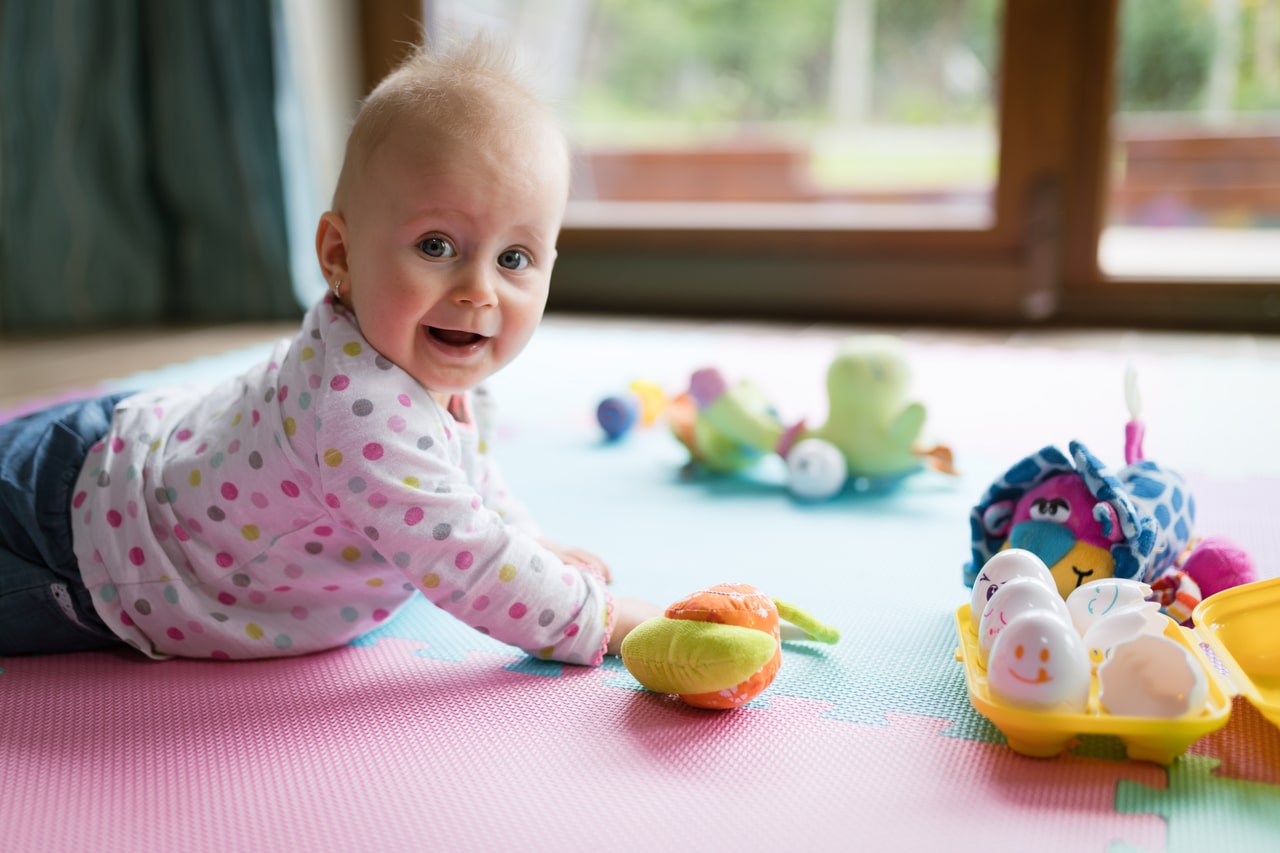
When selecting age-appropriate toys for babies, it’s important to choose toys that are safe and stimulating. Here are some tips to keep in mind:
- Age-Appropriate Toys: Always check the age recommendation on the toy. It’s important to choose toys that match your baby’s developmental stage. As your baby grows, select toys that challenge their skills without causing frustration.
- Safety: Such toys should be safe for babies. Avoid toys with small parts that could pose a choking hazard. The materials should be non-toxic, and the toy should be durable enough to withstand chewing.
- Sensory Stimulation: In the early months, babies learn through their senses. Choose toys with different textures, sounds, and bright colors to stimulate their sensory development.
- Interactive Features: Select toys that respond to your baby’s actions with lights, movements, or music. These can keep your baby engaged and promote their curiosity and fine motor skills.
- Promote Physical Development: Look for toys that encourage physical activity, such as push-and-pull toys, stacking blocks, and activity centers. These can help develop your baby’s gross motor skills.
- Social Interaction: While babies might not fully grasp the concept of cooperative play, introducing toys that involve taking turns can lay the groundwork for this skill.
- Longevity: Consider toys that can grow with your baby. Many toys have adjustable settings or different modes that can provide ongoing challenges as your baby develops.
How do you select educational toys for toddlers?
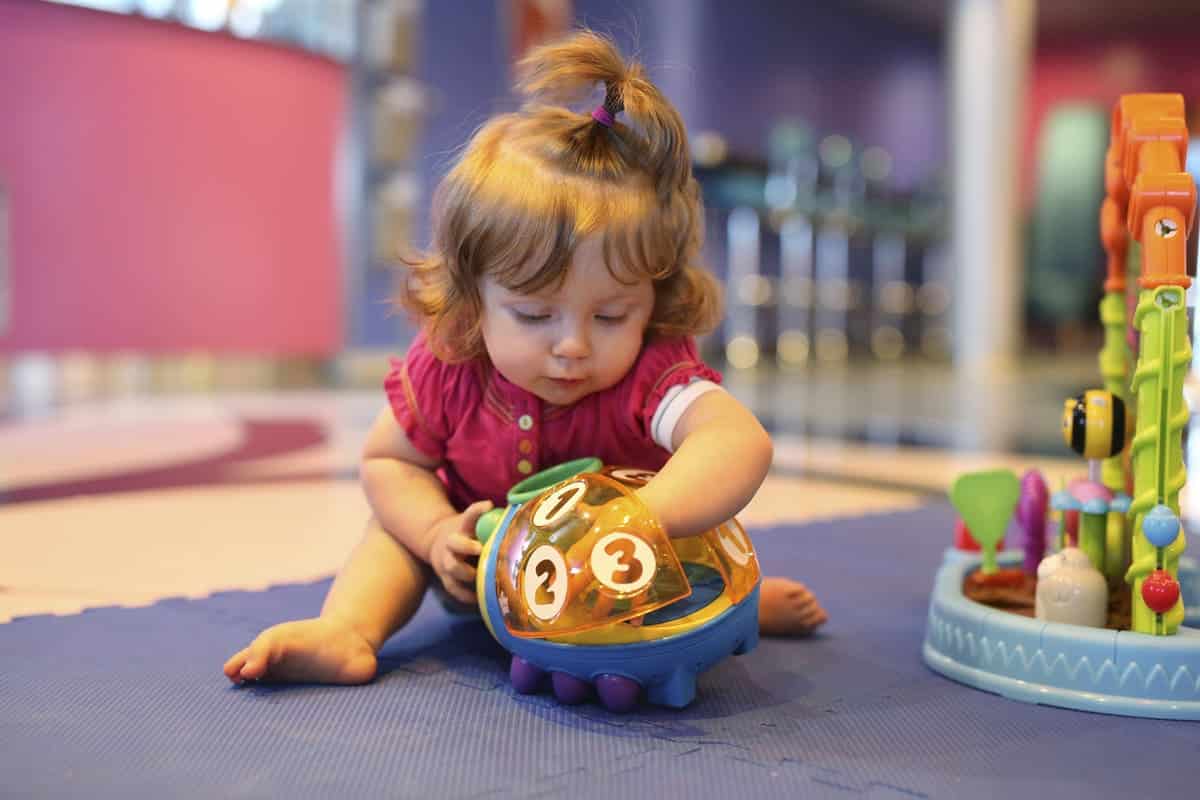
As your child transitions from baby to toddler, their learning needs and abilities change. When choosing age-appropriate toys for toddlers, keep these tips in mind:
- Open-ended Play: Toddlers thrive on exploration and experimenting. Look for toys that can be used in different ways and encourage creativity and problem-solving.
- Role-play Toys: Pretend play is an important part of toddler development. Select toys that allow your child to role-play as they help you with your child’s development.
- Simple Technology: Along with traditional toys, you can introduce simple technology such as interactive books or tablets designed for young children.
- Language Development: Look for the right toy that promotes language development, such as building blocks with letters or card games.
- Physical Activity: Toddlers are constantly on the move, so choose toys that promote physical activity and coordination, such as tricycles or balls.
- Educational Value: When selecting age-appropriate toys for toddlers, consider the specific skills or concepts they can help develop, such as counting, letter recognition, or problem-solving.
- Safety and Durability: Just like when selecting toys for babies, safety and durability are still important factors to consider. Pick toys that are well-made and free of small parts that could pose choking hazards.
How do you select educational toys for preschoolers?
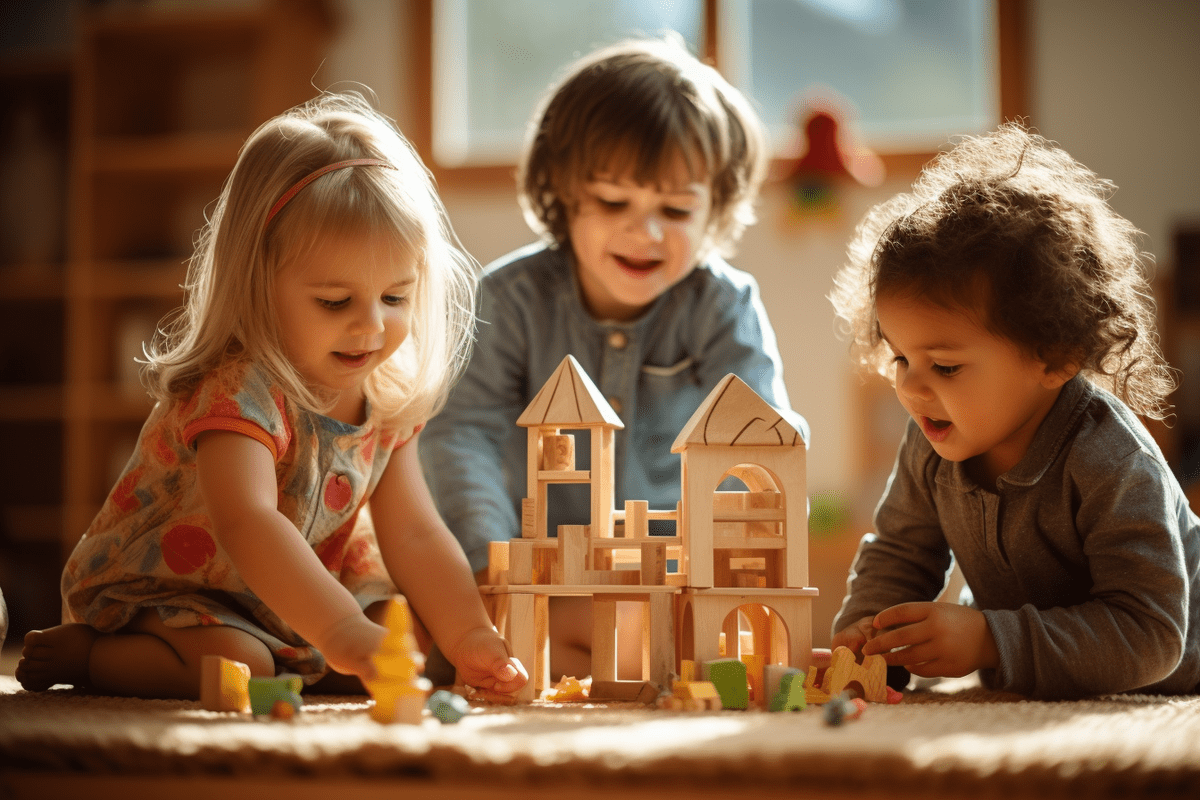
Choosing toys for preschoolers follows similar principles to selecting toys for toddlers, with a few additional considerations:
- Versatility: Preschoolers are at an age where they are developing new skills rapidly. Look for toys that can be used in multiple ways and can promote different types of play.
- Creativity and Imagination: At this stage, children have developed the ability to use their imaginations and engage in pretend play.
- Problem-Solving Skills: Preschoolers are also developing their problem-solving skills. Choose toys that challenge them to think critically and find solutions.
- Educational Value: When selecting educational toys for preschoolers, consider the specific concepts and skills they can help develop, such as basic math, science, or social studies skills.
- Fine Motor Development: Preschoolers are also refining their fine motor skills. Look for toys that involve manipulating small objects or using tools.
- Social Skills: As children enter their preschool years, they begin to interact more with peers. Choose toys that promote cooperative play and social skills development.
How do you select educational toys for big kids?
Selecting age-appropriate toys for big kids can be a bit more complex than choosing for infants or toddlers. These children are usually more independent, have specific interests, and their learning needs are more advanced. Here are some guidelines:
- Interests and Passions: Most parents know what their kids are passionate about. Whether it’s space, dinosaurs, art, or coding, selecting toys that align with their interests can make learning more enjoyable and effective.
- Age-Appropriate: Even though they’re bigger, age appropriateness is still crucial. The perfect toy should challenge them but not be so difficult that it leads to frustration.
- Encourage Creativity: Toys that foster creativity are excellent choices for big kids. These can include building sets, art supplies, or musical instruments.
- Promote Problem-Solving: Toys that encourage problem-solving can help develop critical thinking skills. Complex puzzles, science kits, and strategy games are good options.
- Stimulate Physical Activity: While many educational toys focus on mental development, don’t forget about physical activity. Sports equipment, outdoor exploration kits, and active video games can promote physical health and coordination.
- Encourage Family Involvement: Family members can play a significant role in a child’s learning. Choose games and activities that the whole family can participate in.
- Long-Term Use: Look for toys that will continue to provide value as your child grows. Many educational toys for big kids have multiple levels or challenges and can be used for years to come.
Tips on how to introduce educational toys to kids
Educational toys may be beneficial for a child’s development, but introducing them to kids can sometimes be a challenge. Here are some tips to help make the process smoother:
- If your child is not used to playing with educational toys, start by introducing one or two at a time.
- Encourage your child to explore the toy on their own rather than instructing them on how to play with it.
- Make sure the educational toys are age-appropriate for your child.
- Use the toys as a tool to spark your child’s curiosity and creativity. Ask them questions about the toy or suggest new ways to play with it.
- Don’t limit your child’s playtime with the toys. Let them explore and discover on their own, even if it means making a mess or not using the toy in its intended way.
- Rotate the toys regularly to keep your child interested and engaged.
- Set aside dedicated time for playing with educational toys, but also incorporate them into other activities and playtime.
- Be patient and give your child time to adjust to the new toys. They may not immediately take to them, but with consistent exposure, they will begin to enjoy and benefit from them.
- Don’t make it feel like a chore or obligation for your child to play with educational toys. Instead, make it fun and enjoyable for them.
- Be open-minded and willing to learn from your child’s interactions with the toys. They may surprise you with their unique perspective and ideas.
Conclusion
To sum it up, selecting the right toys for children of different ages can greatly impact their development and learning. Parents can select toys that are not only enjoyable but also foster skills and knowledge by considering factors such as safety, versatility, creativity, and age-appropriateness. Introducing these toys to kids requires patience and guidance, but with a positive attitude and open-mindedness, children can greatly benefit from them. So, the next time you’re looking for a new toy for your child, remember to keep these tips in mind and choose wisely!

